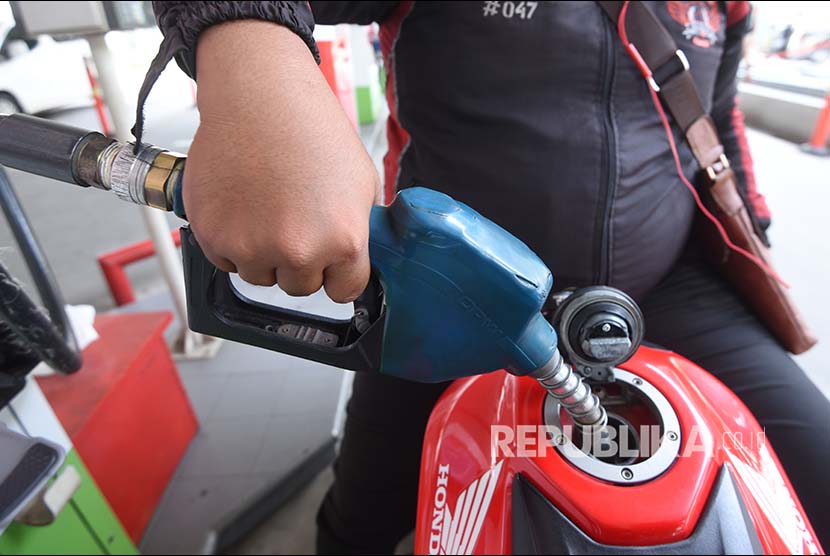REPUBLIKA.CO.ID, JAKARTA -- Bank Indonesia (BI) Governor Agus Martowardojo has stated that the rise of the world's oil prices and foodstuffs could affect inflationary movement in 2018.
"What to watch out for are the food and oil price volatility," Agus stated here on Wednesday.
He added that the world's oil price fluctuation that tends to increase in recent months could affect inflation.
However, he assured that the potential for price rise of Pertamax gasoline, which is caused by the risk of world's oil price, does not interfere with the 2018 inflation projection of 3.5 percent plus or minus one percent.
Pertamax is a high-Research Octane Number (RON) recommended for vehicles with compression of 9.1-10.1, especially those that have used technology equivalent to Electronic Fuel Injection (EFI) and catalytic converters.
Nevertheless, Agus admitted that oil prices above the assumed average in the 2018 State Budget of US$48 per barrel could have a positive impact on state revenues.
"This can make the budget absorption plan, especially government consumption and social assistance, to be realized and is good for economic growth," Agus remarked.
In addition, he expected that the food price, which has been a major contributor to inflation and has been well maintained throughout 2017, would not be hit by turmoil in 2018.
Earlier, the Central Bureau of Statistics (BPS) recorded an increase in electricity tariffs to become a dominant commodity against national inflation in 2017, which was recorded at 3.61 percent.
In addition to electricity tariffs, contributing to inflation of 0.81 percent in 2017, other dominant commodities contributing to inflation were vehicle registration renewal costs of 0.24 percent, fresh fish of 0.20 percent, and gasoline of 0.18 percent.
Under these conditions, administered price inflation in 2017 was recorded at 8.7 percent, followed by core inflation at 2.95 percent and volatile food prices at 0.71 percent.
"Efforts to maintain the volatility of food price in 2017 was quite successful, and this needs to be maintained for 2018 too. We will take this as a good experience to anticipate unnecessary volatility," BPS's Head Suhariyanto noted.
The achievement of inflation rate in 2017, amounting to 3.61 percent, is under the assumption of inflation set by the government in the State Budget Amendment of 4.3 percent.



